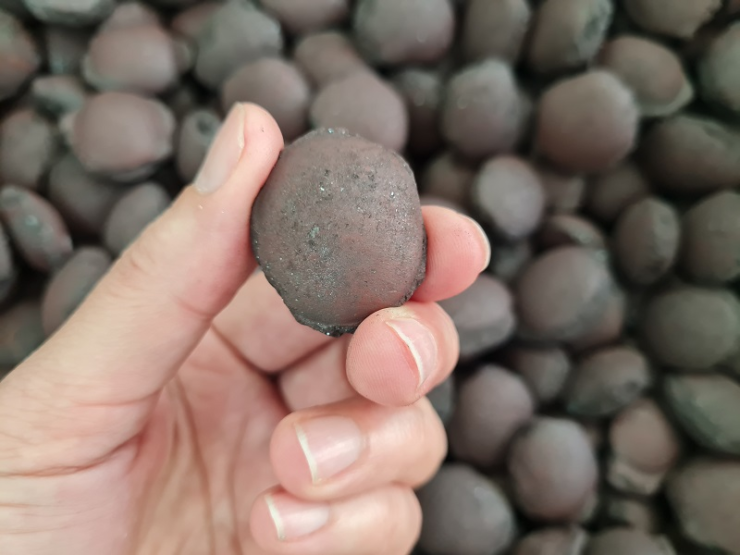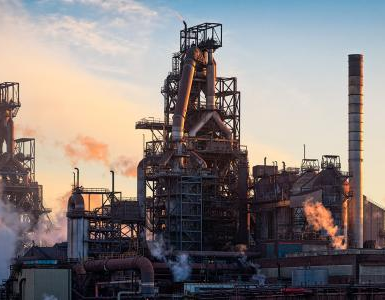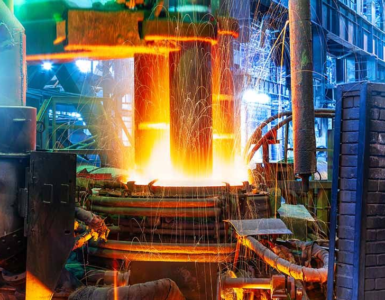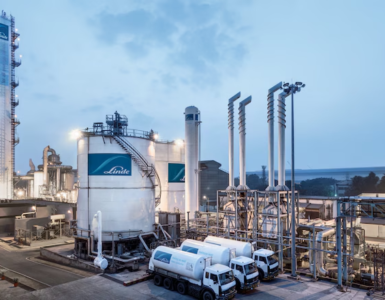Vale and H2 Green Steel sign agreement to study the development of green industrial hubs in Brazil and North America.
Vale and H2 Green Steel have signed an agreement to jointly study the feasibility of developing green industrial hubs in Brazil and North America, enabling sustainable steel production. In such industrial centers, H2 Green Steel is exploring to produce low-carbon steel value chain products, such as green hydrogen and hot briquetted iron (HBI), using iron ore briquettes produced by Vale as input material and renewable electricity as the energy source for its hydrogen production.
Through this agreement, Vale establishes a partnership in Brazil with a green iron and steel producer that is at the forefront of global decarbonization, while fostering the low-carbon industry and stimulating the green hydrogen chain in the country.
Eduardo Bartolomeo, Vale’s president, said:
🔥 What about we co-host a webinar? Let's educate, captivate, and convert the hydrogen economy!
Hydrogen Central is the global go-to online magazine for the hydrogen economy, we can help you host impactful webinars that become a global reference on your topic and are an evergreen source of leads. Click here to request more details
Through this partnership, Vale is taking its first steps into the green hydrogen market.
“The initiative reinforces Vale’s role as a driver of Brazil’s new industrialization, which will be based on low-carbon industry, fulfilling our vocation as anchors of regional development, as we have always done throughout our history.”
H2 Green Steel is a Swedish industrial startup that was founded in 2020 and has already begun construction of its first large-scale steel mill in Boden, in Sweden, using green hydrogen.
Kajsa Ryttberg-Wallgren, EVP Growth and Hydrogen Business of H2 Green Steel said:
We announced early on our journey that we want to explore other geographies where we can accelerate the decarbonization of the steel value chain.
“Both Brazil and parts of North America have great potential due to the access of both renewable energy sources, high quality iron ore, and political willingness to support decarbonization projects and it’s a great opportunity for us to explore our partnership with Vale beyond the pellet supply to our flagship plant in Boden.”
In the green industrial hubs, Vale is expected to build and operate briquette plants, which will feed direct reduction reactors for the production of HBI and other metallics. The number of industrial hubs that will be built, their location and production capacity will be defined following feasibility studies to be developed jointly by the two companies.
In July, Vale and H2 Green Steel also signed an agreement to supply direct reduction pellets to the Boden plant. Vale expects to reach a production capacity of 100 million tons of agglomerates (briquettes and pellets) after 2030.
Marcello Spinelli, Vale’s Vice President of Iron Ore Solutions, said:
We see great potential in Brazil as a hub for low-carbon steel products.
“The country offers conditions such as high-quality iron ore and great availability of renewable energy, including wind and solar, supporting the production of green hydrogen. Vale has been contributing by offering premium iron ore and developing high value-added products, such as briquettes and pellets, and innovative business models, such as these green industrial hubs.”
Iron ore briquette, a Brazilian innovation
Developed by Vale at its technology center in Brazil, briquette is produced from the low-temperature agglomeration of high-quality iron ore using a technological solution of binders, which gives the final product high mechanical strength. The first briquette plant – an investment of US$ 256 million – is being commissioned in Vitória, in Brazil, and will begin production by the end of the year.
Initially, Vale will produce in Vitória briquette for the BF-BoF route, which has already been tested and approved by several clients. The company is continuing to develop briquettes for the direct reduction route. Seven experimental tests have been carried out successfully and two industrial tests will be carried out later this year.
Iron ore solutions supporting low-carbon steelmaking
Vale has set a target of reducing its scope 3 emissions in the value chain by 15% by 2035, the equivalent to the emissions of a nation such as New Zealand. Vale has already signed more than 50 agreements with clients to offer decarbonization solutions, which account for 35% of the company’s scope 3 emissions.
Among the proposed solutions is the construction of briquette plants collocated on the premises of some clients, in addition to green industrial hubs, also known as Mega Hubs. So far, three such industrial complexes have been announced in the Middle East (Saudi Arabia, the United Arab Emirates and Oman), which will produce HBI to supply the local and transoceanic markets.
Decarbonization of operations as a commitment to the sustainability of Brazil and the world
Vale has set the target of reducing its net scope 1 and 2 carbon emissions (direct and indirect) by 33% by 2030, with the aim of being carbon-neutral by 2050. In 2021, the company announced investments of between US$ 4 billion and US$ 6 billion to achieve this target.
To reduce direct emissions, Vale has been studying the adoption of alternative fuels for its railroads, such as green ammonia – produced from hydrogen – and for its trucks, such as ethanol. The company also adopts electrification for smaller equipment. To decarbonize production in its pelletizing furnaces, Vale has been testing the use of biocarbon instead of coal.
The company has set itself the goal of achieving 100% of electricity consumption from renewable sources in its Brazilian operations by 2025 and globally by 2030. In July, Vale announced that it reached full capacity at the Sol do Cerrado solar complex, which was inaugurated in 2022 in the state of Minas Gerais, an investment of R$3 billion that will supply 16% of all the energy consumed by the company in Brazil.
Also in July, an agreement was reached with Wabtec to begin studies into the development of green ammonia as a fuel for trains. Three electric locomotives were also purchased, bringing more energy efficiency.
About H2 Green Steel
H2 Green Steel (H2GS AB) was founded in 2020 with the ambition to accelerate the decarbonization of the steel industry, using green hydrogen. Steel, which is one of the world’s largest carbon dioxide emitters, is the company’s first business vertical.
The founder and largest shareholder of H2 Green Steel is Vargas, which is also co-founder and one of the larger shareholders in Swedish battery maker Northvolt. H2 Green Steel is headquartered in Stockholm, Sweden, with its first green steel plant under development in Boden, northern Sweden. www.h2greensteel.com
Vale and H2 Green Steel sign agreement to study the development of green industrial hubs in Brazil and North America, September 6, 2023








